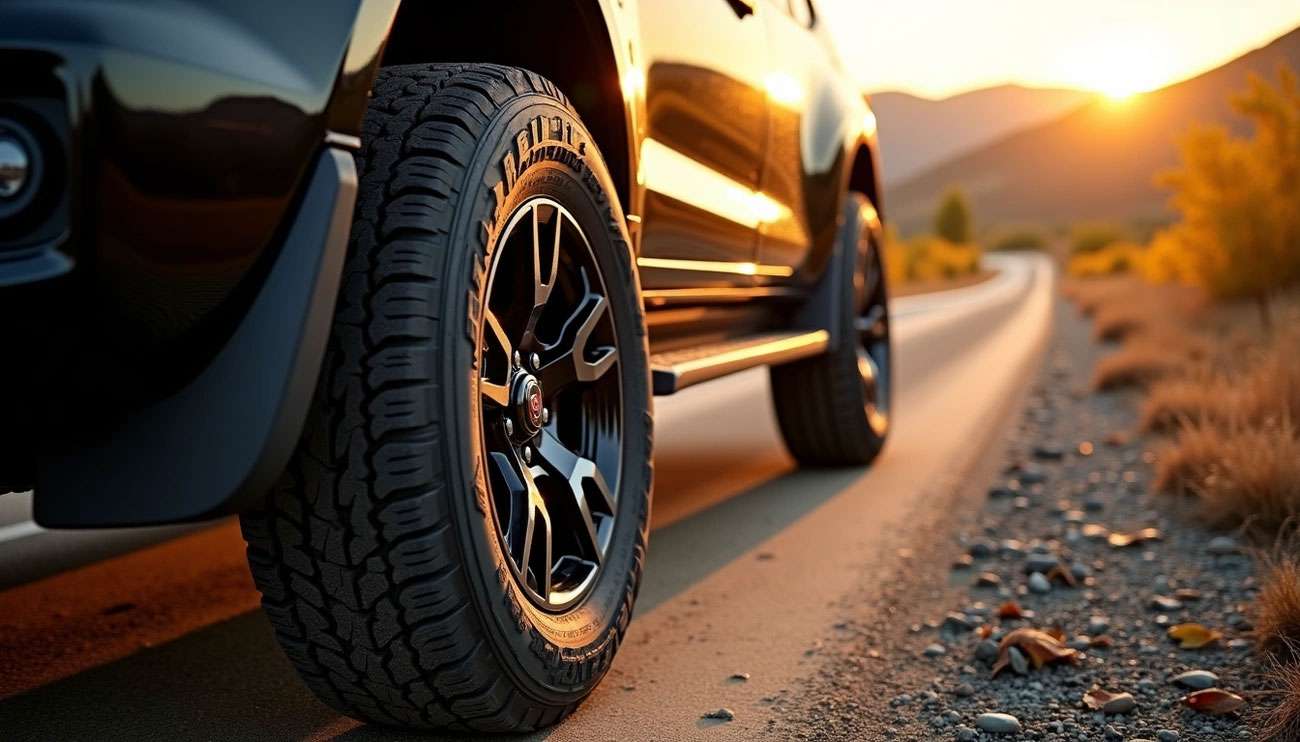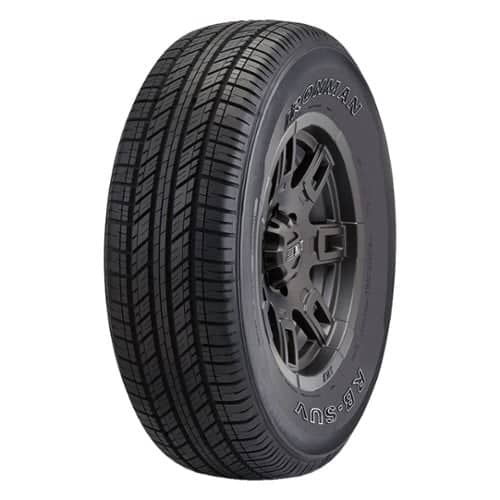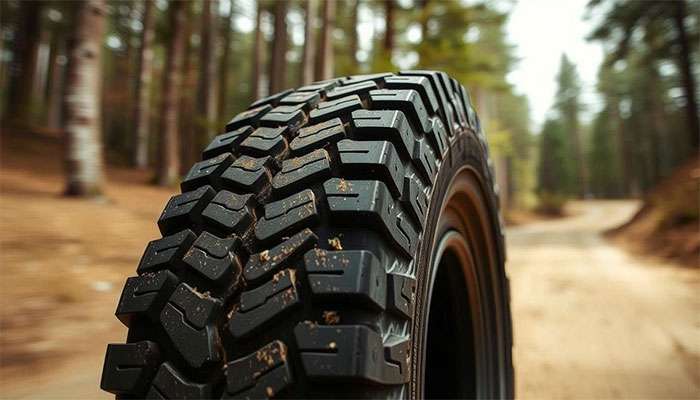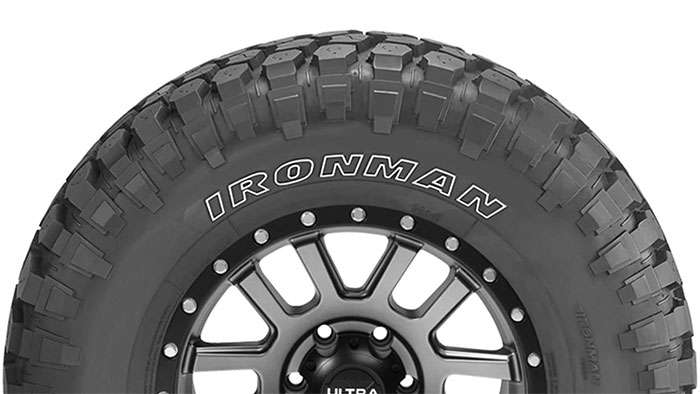
Ironman Tires has been delivering solid performance since 1952 as part of Hercules Tire and Rubber Company. These budget-friendly tires come from manufacturing facilities in Ohio, Findlay, and China, meeting international standards including USA requirements. The question isn't whether they're affordable â€" it's whether they can deliver reliable performance for your daily driving needs.
Our testing reveals impressive versatility across vehicle types. Ironman tires work with sedans, passenger cars, SUVs, and light trucks. Starting prices range from $49.35 for the iMove Gen 2 AS up to $129.15 for the All Country A/T. Most models offer warranties between 40,000 to 70,000 miles depending on the specific tire design.
The brand backs their products with a 60-month limited protection policy against manufacturer defects. For drivers who need dependable tires without premium pricing, Ironman presents a practical option worth examining.
When choosing budget tires, performance matters as much as price. We'll break down what these tires actually deliver in real-world conditions and whether they meet the needs of everyday drivers seeking value without sacrificing basic safety and reliability.

Several key engineering features distinguish Ironman tires from other budget options. Understanding these technical elements helps explain why these tires perform better than their price suggests.
Ironman's advanced tread designs focus on maximizing road contact for reliable handling and stability. The asymmetric tread patterns incorporate multi-groove sipes that create additional biting edges for grip in various conditions. Chamfered tread blocks increase the contact patch between tire and road surface, improving traction during acceleration and braking.
Four wide circumferential grooves channel water away efficiently, reducing hydroplaning risk in wet conditions. This engineering approach carries across their entire range, from highway-focused models to rugged all-terrain designs.
The M+S (Mud and Snow) rating appears on most Ironman models, indicating tested performance beyond just dry pavement. Take the All Country AT2 - its angled tread blocks dig into loose surfaces while evacuating mud, water, and snow for consistent traction. Large tread blocks with deep grooves provide the bite needed for off-road adventures.
This versatility means you can tackle different terrains without swapping tires seasonally. Whether you're commuting on highways or exploring weekend trails, these tires adapt to changing conditions.
Road noise reduction gets serious attention in Ironman's design process. Sound-absorbing elements built into the tire structure cut down on highway drone, especially important during long drives. The RB-12 uses variable tread spacing specifically engineered to break up sound waves while maintaining comfort.
Semi-closed shoulder groove designs strike a balance - they improve ride quality while still moving water effectively away from the contact patch. Even at highway speeds, these tires stay quieter than most budget alternatives.
Manufacturing happens through a global network with quality oversight. The brand operates from Huntersville, N.C., but production occurs at multiple locations. Some tires come from the Findlay, Ohio facility that also handles Cooper tire production. However, most manufacturing takes place overseas, primarily in China.
This international approach keeps costs manageable while maintaining quality standards. Each facility follows strict quality control processes, whether located in the United States or international partners. The result is consistent tire performance regardless of manufacturing location.

Image Source: Best Tire Reviews
Testing these tires across different road conditions reveals performance that goes beyond their budget positioning. Here's what we discovered during actual daily driving scenarios.
The All Country AT2 delivers reliable traction with its staggered blocks that maintain road contact across weather conditions. The siping details create additional biting edges that improve performance in light winter conditions. Wide circumferential grooves in many models ensure excellent water evacuation while enhancing braking performance. This footprint design reduces hydroplaning risk by efficiently draining water from beneath the tire.
Most models handle dry conditions confidently, with wet weather performance being surprisingly capable for the price point. Light snow presents manageable traction, though heavy winter conditions require dedicated winter tires.
Highway driving showcases another strength. The RB-SUV model uses a solid center rib that promotes straight-line stability for larger vehicles. The iMove Gen2 SUV features a continuous center rib that enhances directional stability and cornering grip at highway speeds. These design elements create real-world confidence when traveling at sustained high velocities.
Even at 70+ mph, these tires maintain composure without the wandering or instability common in budget alternatives.
Fuel efficiency improvements appear in newer models. The GS906 model comes with an all-season compound that reduces rolling resistance for better fuel efficiency. Their newer commercial lineup features advanced rolling resistance technology that boosts fuel efficiency, allowing vehicles to go further faster. Testing shows the Ironman Tubeless achieved rolling resistance scores of just 14.5 Watts compared to competitors' 19.8 Watts.
Longevity matters for value-conscious buyers. Ironman's Peace of Mind Warranty now covers up to 55,000 miles on passenger and light truck tires. Models like the RB-SUV and All Country HT are built to deliver 55,000 miles, while the All Country AT2 comes with a 50,000-mile treadwear warranty. Standard mileage coverage for most models ranges between 40,000-55,000 miles, depending on the specific design and intended use.
Actual mileage varies with driving habits and conditions, but most drivers achieve close to warranty expectations with proper maintenance.
Ironman offers several tire models designed for specific driving needs. Each model targets different performance requirements and vehicle types.
The All Country A/T 2 delivers versatility with angled tread blocks that grip dirt, gravel, and off-road surfaces. These blocks improve mud, water, and snow evacuation for better traction in challenging conditions. Zig-zag grooves provide a quieter ride even on rough terrain. Four circumferential grooves enhance wet-condition performance, while full-depth sipes increase traction on ice and snow. This model includes a 50,000-mile warranty backed by a 60-month limited protection policy.
The GS906 focuses on fuel efficiency with its all-season touring compound that reduces rolling resistance while maintaining stability. High-density siping improves wet and snow traction, reducing hydroplaning risk. Designed for passenger vehicles, this model features tread elements that cut road noise while increasing stability. Get the best price on all Ironman Tires including this practical all-season option.
The RB-12 emphasizes comfort through its symmetric five-rib tread design that creates a larger footprint for better stability. Variable tread design cuts road noise and improves ride comfort. The tire's construction increases hydroplane resistance, while slotted shoulders and wide grooves improve water evacuation. Built for 45,000 miles, this model balances durability with everyday performance.
The iMove Gen 2 AS features an asymmetric tread design that provides better traction and responsive handling in wet and dry conditions. Built with a next-generation wear-resistant compound, this M+S rated tire offers even wear and longer tread life. Circumferential and longitudinal grooves maximize water evacuation to reduce hydroplaning risk. The model comes with a 40,000-mile warranty and comprehensive road hazard protection for up to two years.

Image Source: Automoblog
Ironman tires present a clear value equation with distinct strengths and notable limitations that affect their suitability for different drivers.
Ironman tires deliver quality without breaking the bank. The brand offers options for vehicles from sedans to SUVs. Many models provide comfortable rides that reduce road vibrations and noise. You get a 60-month limited protection policy plus road hazard protection covering replacement for up to two years.
These tires generally wear faster than premium brands. Some users report tread separation after just 15,000 miles. Most models lack the tread life warranties you'll find with competitors. Winter performance remains their biggest weakness - many reviewers warn against using them in snow conditions.
Customer feedback shows mixed but generally positive results. The All Country A/T scores 4.64 out of 5 stars across 94 ratings. The popular iMove Gen 2 A/S maintains 4.27 stars from 461 reviews. Users consistently praise affordability and dry/wet traction, though winter handling complaints appear regularly. Get the best price on all Ironman Tires if you need budget-friendly options with decent everyday performance.
Ironman tires deliver solid value for drivers who need dependable performance without premium pricing. Our testing shows these tires provide acceptable quality at their price point, successfully balancing cost efficiency with everyday reliability in dry and wet conditions.
Expectations matter when choosing budget tires. Ironman won't match the longevity or extreme performance of premium brands costing twice as much. Winter performance remains limited despite M+S ratings, so drivers in heavy snow regions should consider dedicated winter tires.
The standout benefit comes from their versatility across vehicle types. Whether you drive a sedan, SUV, or light truck, Ironman offers appropriate options at accessible prices. The noise reduction technology also deserves recognition, delivering quieter rides than many similarly priced alternatives.
Tire buying often comes down to value calculation. With warranties from 40,000 to 70,000 miles plus the protection policy, Ironman positions itself as a practical choice for everyday drivers. For those seeking reliable tires without spending premium prices, you can get the best price on all Ironman Tires through Performance Plus Tire's website.
These tires work best for drivers who prioritize initial cost savings and acceptable performance over premium features or maximum longevity. Based on our testing, they represent a surprisingly good option worth considering for practical, budget-conscious drivers seeking value without sacrificing basic safety and reliability.
After extensive real-world testing, Ironman tires prove to be surprisingly capable budget options that deliver solid everyday performance without premium pricing.
• Exceptional value proposition: Starting at just $49.35, Ironman tires offer 40,000-70,000 mile warranties with reliable dry and wet weather performance for daily driving needs.
• Versatile but limited winter capability: While M+S rated models handle light snow adequately, they're not recommended for heavy winter conditions despite their all-season marketing.
• Impressive noise reduction technology: Multiple models feature sound-absorbing elements that deliver quieter rides compared to similarly priced competitors, enhancing comfort during long trips.
• Quality manufacturing with global reach: Produced in Ohio and China under strict quality standards, these tires meet international requirements while maintaining affordable pricing through efficient production.
• Mixed longevity performance: While warranties promise 40,000+ miles, some users report premature tread wear around 15,000 miles, making them best suited for budget-conscious drivers prioritizing initial savings over maximum durability.
The bottom line: Ironman tires excel as practical choices for everyday drivers who need reliable performance at budget-friendly prices, but expectations should align with their value-focused positioning rather than premium tire capabilities.
Ironman tires generally offer reliable traction in dry and wet conditions. Many models feature advanced tread designs with wide grooves for efficient water evacuation, reducing hydroplaning risk. However, their performance in heavy snow and ice is limited, so dedicated winter tires may be necessary for severe winter climates.
Most Ironman tire models come with warranties ranging from 40,000 to 70,000 miles, depending on the specific design. However, real-world longevity can vary. Some users report getting the full warranty mileage, while others experience faster wear, with tread separation occurring as early as 15,000 miles in some cases.
Ironman tires offer good value for budget-conscious drivers. They provide acceptable everyday performance at affordable prices, starting from around $50 per tire. While they may not match the quality of premium brands, they deliver surprisingly decent quality and comfort for their price point.
Ironman produces tires for a wide range of vehicles, including sedans, SUVs, light trucks, and some commercial vehicles. They offer various models to suit different driving needs, from all-season touring tires for passenger cars to all-terrain options for light trucks and SUVs.
Many Ironman tire models incorporate noise reduction technology, resulting in a quieter ride compared to other budget tire options. While they may not match the comfort level of premium brands, users often report satisfactory ride comfort and reduced road noise, especially in models like the RB-12 designed for passenger car comfort.